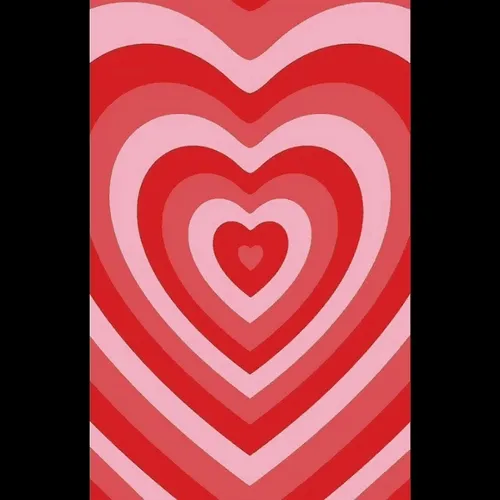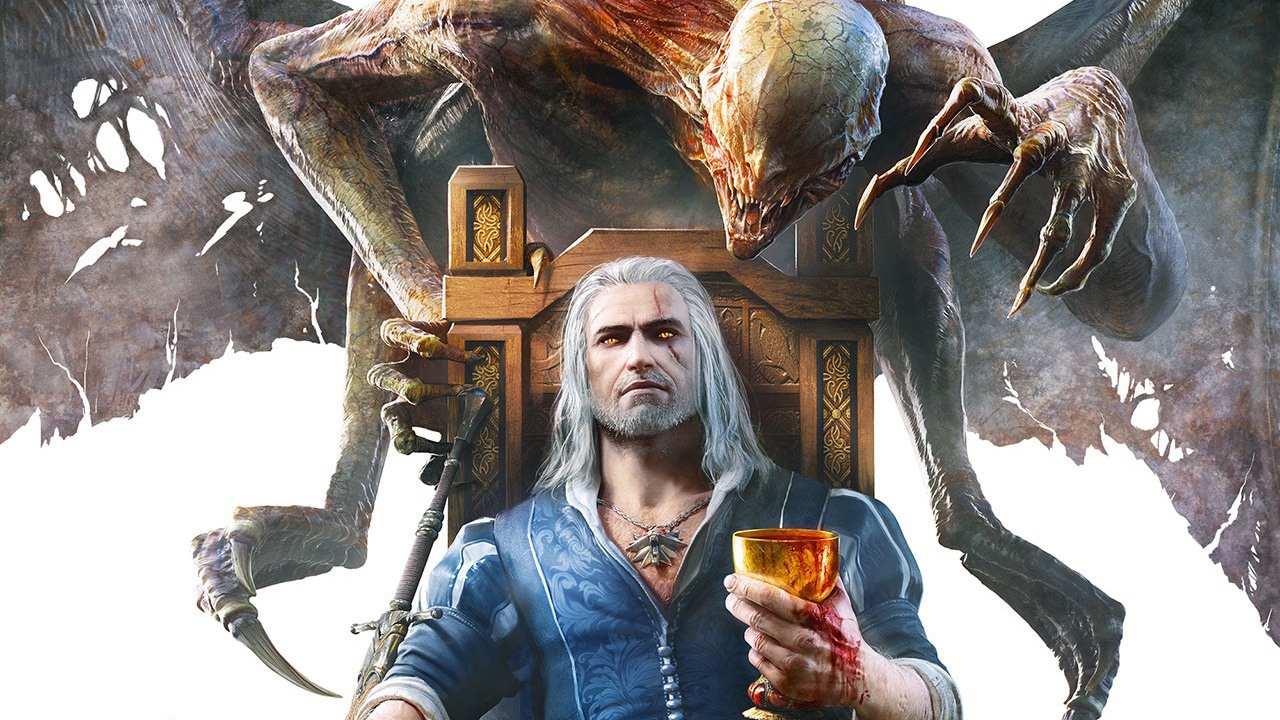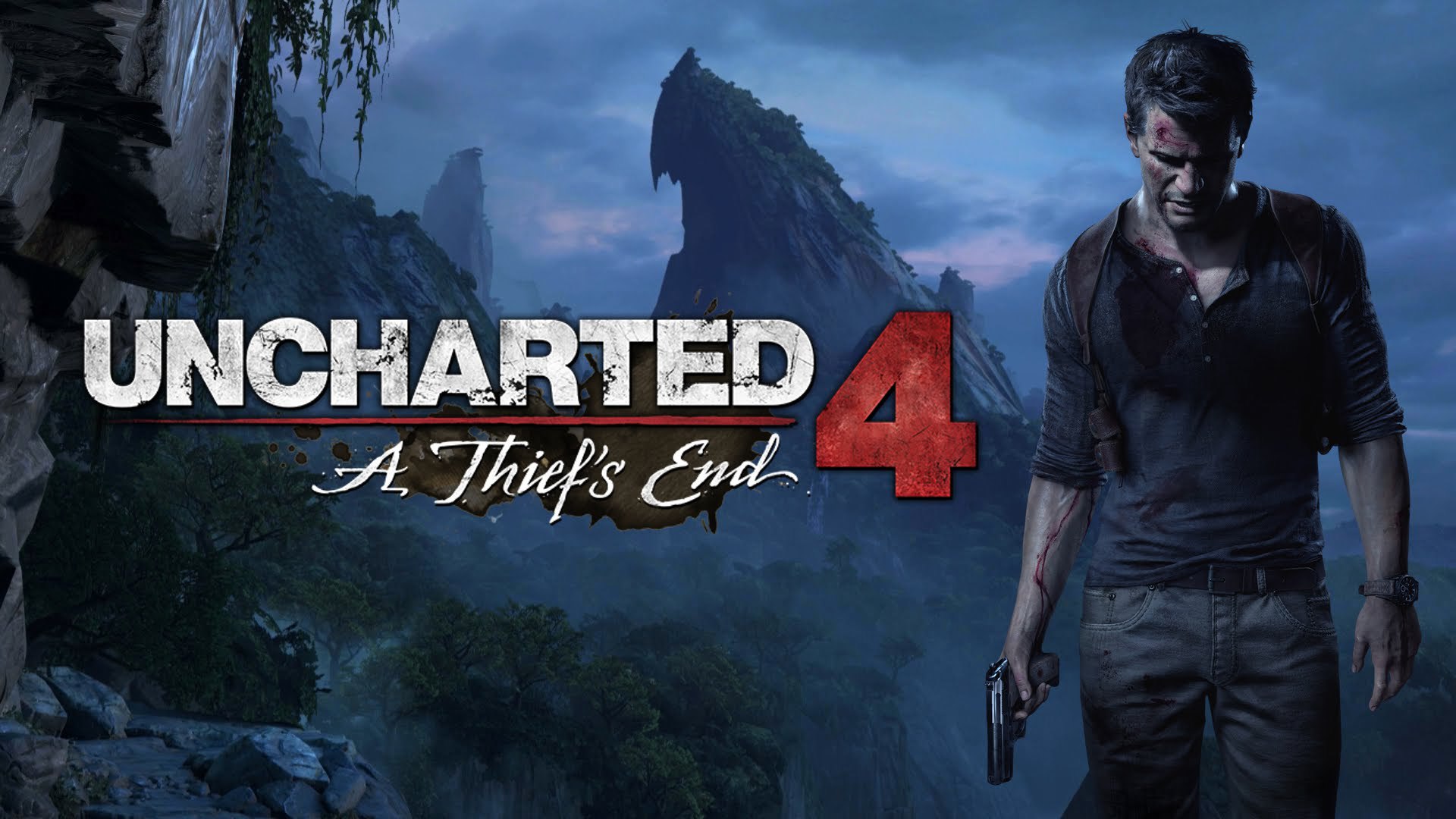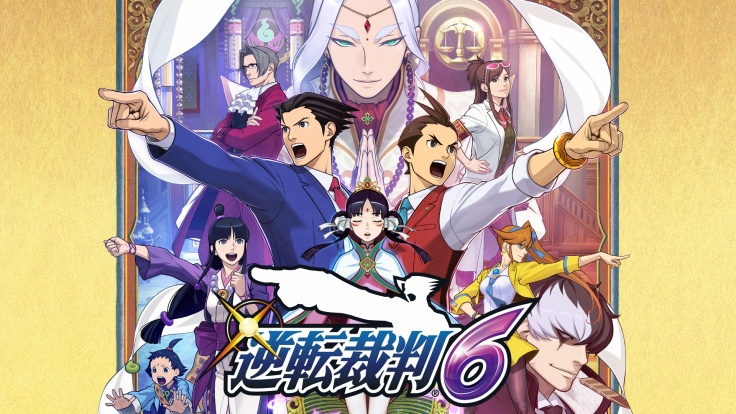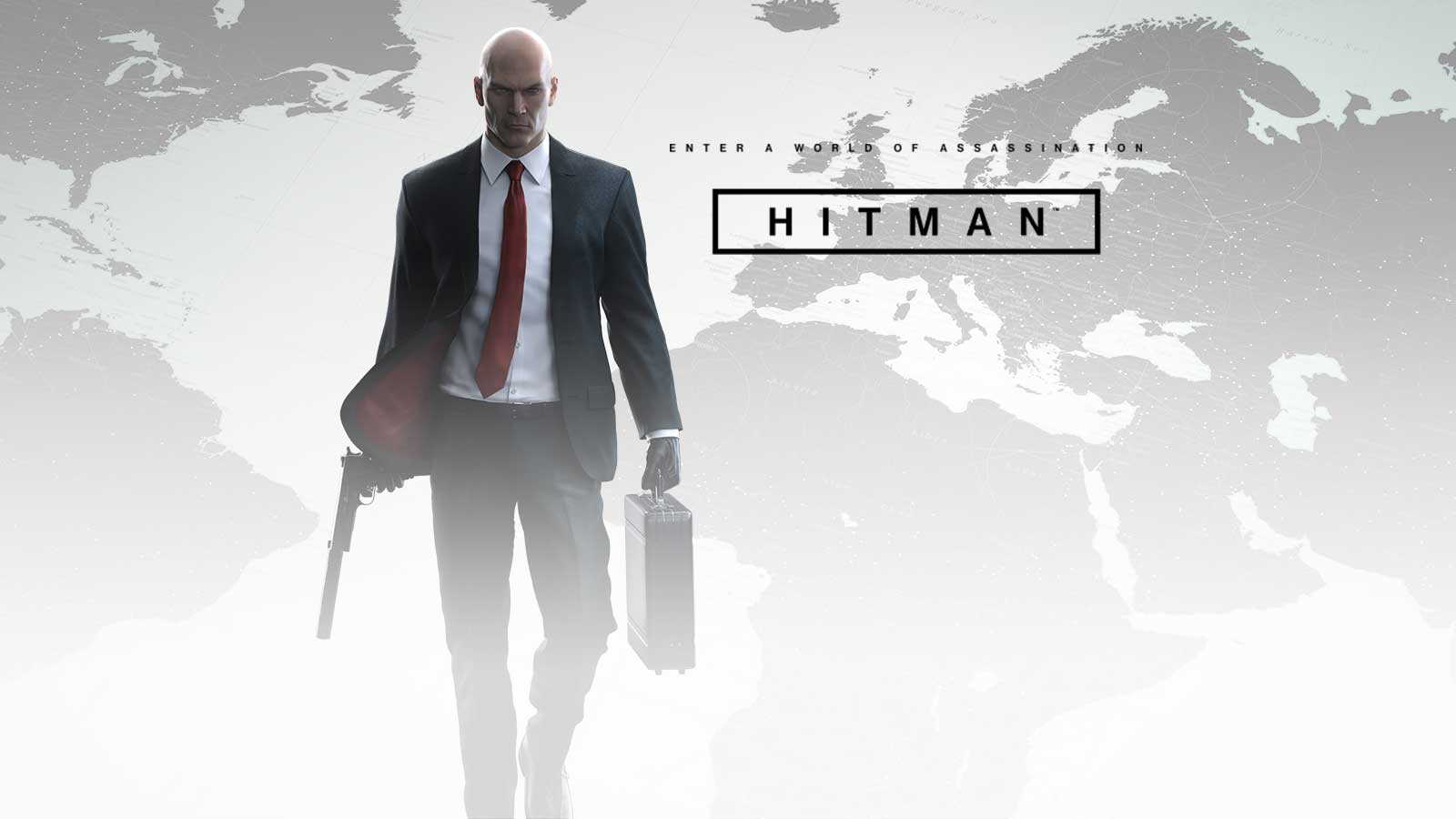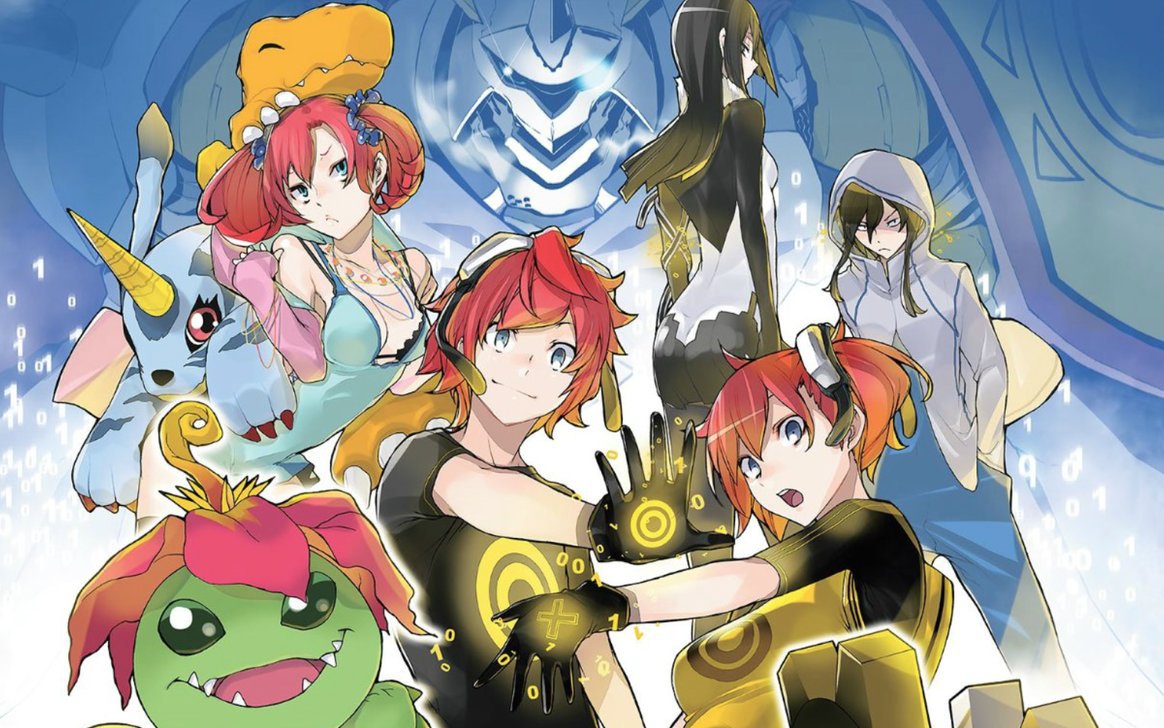1.
The Witcher 3: Wild Hunt - Blood and Wine ; This game continues to prove what can be accomplished with expansions that take on the established framework of a base title in a meaningful way. The world of The Witcher 3 is expanded upon even more with the Toussaint region opened to explore. The environment is lush with a bright color palette constructed to stand out from the estate in Novigrad. This land is filled with even more fun sidequests, entertaining characters to meet and features to fully flesh out Geralt's time riding in Toussaint.
This additional story also focuses on a primary beast that commonly makes their presence known within bustling cities: Vampires. I won't let much, but this is another great side story added to Geralt's journey log with its own unique characters and perspectives intact. If I did have issues with it, I'd say that the passage of time within the story felt odd at a certain point (skipping events that shouldn't have been traced over) and the motivation for the antagonist comes off shaky. Overall, I'd recall the story in Hearts of Stone being the better overall piece. However, Blood and Wine hosts a story of its own
and great sidequests to add to an excellent new landscape. The full package includes a title that adds more than, the also amazing, Hearts of Stone already did. The story is also a bittersweet conclusion for the chapter of Geralt's adventures (in the video games; the books have different lore). The ending tugged great emotion from me, but calmed with satisfaction of the excellent previous content leading up to the narrative's final moments.
In 2015, I placed
Hearts of Stone in
8th for the year. I will admit that this was more an action of separating "DLC expansion" from "Base game" titles. With
The Witcher 3: Wild Hunt already being placed
1st on that list, I saw it fair to keep the item without pairing it too much with the base game that won GoTY for me and many other outlets.
Blood and Wine has taught me that there is little need for this distinction. The developer, CDPR, added such a breadth of hands-on content past the base game
and delivered such a thrilling set of quest lines for the players to engage in. This expansion is the game I look back on this year with a full mind going forward of what big-budget RPGs can achieve and how they can improve. I still can't believe a DLC expansion is winning my Game of the Year award so handily for 2016, but it is a bias I will need to learn to look past if others companies dare follow suit with such outstanding content.
2.
Uncharted 4: A Thief's End ; A slower-paced and fitting end to Drake's adventures,
A Thief's End explored Nathan and his brother reliving past glories. The inclusion of Sam is a questionable one. He certainly has a some chemistry with his little brother, but all-in-all ends up as a major yet uninteresting puzzle piece to Uncharted's full picture. Elena, on the other hand, was a much more interesting character this time around. Watching helplessly while she attempts to stabilize a marriage Nathan has between two women (Herself vs. "Adventure") had me rooting for her in a way I never did in past Uncharted titles.
The overall tone and environments shared here are fantastic. Naughty Dog prides themselves on more animations within cutscenes and during gameplay alike. It makes seeing that kiss shared with Drake and Elena at the beginning of the game or Sam excitedly discussing their next excursion all the better. The title really takes it home for Drake in general, letting go of some of the more insane setpieces for calmly paced platforming. It returns Drake to the roots of his time as a thief-in-the-making and the curiosities that inspired him in the first place. It's less a time for constantly gunning down faceless mercenaries (though there is still plenty of that here), while taking on the reflection with adventure Drake has from inadvertently destroying ruins. The combat mechanics, while fine are nothing too outstanding. The guns feel less satisfying than the melee takedowns that range from fair-to-good on a feedback satisfaction level. The stealth sequences in the game were surprisingly easy and enjoyable to engage with.
Uncharted 4: A Thief's End pays tribute to its own lead character by having the player pace themselves with more of Nathan's actual thoughts and decision-making (poor as it can be) regarding subjects past "Should I push this trap button?". It's a title that fittingly takes on the beat of its own drum after taking the reins on generic action films for the past titles its shared. Its approach to storytelling is at times flawed, for example leaving the spotlight on uninteresting characters versus their more intriguing counterparts and some portions of unadulterated meandering. Still, it claims prize as the best Uncharted since
Uncharted 2: Among Thieves for what it does right regarding Nathan's historical context throughout the series.
3.
Phoenix Wright: Ace Attorney - Spirit of Justice ; I'll share right away that this is the best Ace Attorney since Trials and Tribulations. I was actually one of the Ace Attorney players who was more forgiving of
Dual Destinies, but
Spirit of Justice clearly puts on display what the previous title was missing: direction. A strong direction is what makes the titles great and Athena's story in
Dual Destinies is simply lacking it in comparison to many titles in the series.
Spirit of Justice returns Phoenix Wright and actually gives Apollo Justice sorely needed development that he never received in the game of his own namesake. By the end of the ride, I found myself actively liking Apollo now that he was properly explored.
Not all of the cases are as well-done, of course; the third case in particular was of dodgy quality (but great defense side chemistry). Yet, the game maintains its message throughout regarding sacrifice, knowing oneself and taking pride versus crumbling under external pressures. These motifs are not exclusive to this title, but powerful reminders (between all of the silly localized pun names and modern jokes) have not been revisited this well since the original trilogy. Maya's return is unfortunately short-lived, but alas one of my favorite character's poorly executed return was of little consequence compared to making Apollo a more complete, curious individual.
In terms of play, the game makes a callback to most of the past mechanics. It largely sticks to the usually Pressing of Cross-Examination testimony, but the colorful changes of pace including Apollo's Braclet, Athena's Therapy and conclusive "Turnabout sequences" that top things off are making the series easier to keep at for prolonged periods of time. I won't give much on the story but Rayfa, a new character and priestess, is great to interact with. She foils Phoenix Wight and Apollo's awkwardness with her own while not constantly being present in all of the cases. I loved her addition to the cast, which I usually don't for major "one-off" characters. Unfortunately, the title's prosecutor, Nahyuta Sahdmadhi, is simply a more dull version of Edgeworth. He has his own visual flair, but it's backed with a shadow of a personality and doesn't really create chemistry with anyone due to how restrained he is. It's a shame, but the game carries strongly despite this lack.
I am impressed that this installment of the Ace Attorney series successfully added to underdeveloped characters and introduced a new perspective/mechanic while maintaining a great sense of purpose for the series. Combinations of this is why the series deserved my attention in the first place and the return of this execution is much welcome and deserving of its laurels. Here's to hoping I can find myself in the courtroom engaging in good cases with these zany characters a few more times in the coming years.
4.
Hitman ; I have never played this series before, but was told multiple times that the feeble story wouldn't require past investment on and was great for newcomers. I have to say, the hype was justified. I got a game that was an adrenaline rush of hiding in boxes, exploiting A.I. and catching hilarious kill scenes with Agent 47. I said it before, but I'm not a big fan of the stealth genre. The pacing in most of them simply isn't for me and I don't find much fulfillment in getting past all the guards in a room with all of their good health in tact.
Hitman, however, gives you a plethora of options. Now, the A.I. isn't perfect (and will drop to the floor over a single coin flipped in their general direction). Yet, the major mechanics are a joy. Walking past restricted areas, killing off potential witnesses and straight jogging past hostiles in vain hopes of finding cover ahead was just the reckless killing I wanted to enjoy from the series. You won't get high ranking from it, but those ranks don't matter anyhow and simply give experience which let you replay the stage starting in a new location with some new toys to play with. The music booms with each successful target assassination and it fueled me with so much excitement as I rushed towards the nearest (or coolest) exit.
There is a particular portion of extra content one can complete by way of Elusive Targets, which give you one real chance at getting the kill on a special target (unfortunately time/online locked) with briefing video and all. While I find it "charming" that this approach makes for a parallel to what a "real assassin" has to go through in terms of preparation/scheduling, it unnecessarily still locks content punishing those that aren't playing the single-player game at a certain time online. This is unacceptable practice. However, there is more content in the way of killing faceless NPCs with specific conditions that is available for all to unlock. I did not find myself doing these as I like to know my prey, as flimsy as their backstories may be, so killing renamed generic character models does nothing for me. The story has me covered on this, thankfully, and is where I spent the most of my time during the game. One should note that the story mode is quite shorts and can be completed in a matter of hours.
I had a great time with this game and it ended up being much more enjoyable than I had even expected going in. The mechanics flow well with each other and even when the A.I. acted up, I couldn't stop laughing at all of the bold, mindless failures I ran into from playing against the environment rules. Yet, I would recommend someone picking this title up for cheaper if they can. It makes for a better cheap purchase/impulse buy than a full $60 investment overall. I am quite eager for a second season, if it is announced and am appreciative to have played such a pleasant surprise.
5.
Digimon Story: Cyber Sleuth ; This has been the best Digimon game released stateside since Digimon World 2. Monster breeding mechanics are centralized and simplified to largely make smooth transitions between digivolutions. Seeing what new monster comes next and what abilities you'd prefer for them has never been better. The game, for a scaled Vita game (I played on PS4), also has some fair-looking digital locales. I wish the scale was broadened more in the city and dungeons alike, but what is there is fair with obviously restricted budget. The sidequests are also decent, lending to making surrounding NPCs including Digimon and humans have a wide variety of personalities/quirks to lend a fetch or completion quest with the occasional accompanied side story. The combat system is enjoyable in its simplicity and allows for you to succeed with many different types of teams. End-game content is there to provide a challenge for the player's team and for testing combat synergy (while repeatedly cheesing strategies) to take on the really unfortunately designed boss fights. These simultaneously provide a challenge and a mark against the game's poor approach to difficulty. For the most part, however, the combat was fun turn-based simplicity that I never found myself tiring from.
The story is satisfactory in a fashion that rings more personally than previous titles. This involves the typical JRPG friendship, powering up and abuse of power with simplistic execution. It's special for Digimon game stories, but really isn't much in its own right. The final stretch is also spoiled by silly writing decisions and an underdeveloped final encounter. The ending itself was sweet, however, and reminisced to feelings of the original Digimon animation's first season. In fact, a few moments in the game run parallel with this source material and they make for the better highlights in the grander, middling story.
Cyber Sleuth has been what's called a good "return-to-form" that involves easily digestible monster breeding with somewhat misdirected, but slightly decent storytelling for the Digimon game titles.
I don't know where the idea came from to finally make good Digimon games again, but I hope Media Vision keeps doing it. They could also work on their UI and presentation too, but from what was present in Cyber Sleuth, they already have been! This makes me hopeful for any future titles structured similarly and their progression out of complete obscurity.
Honorable Mentions
x.
Final Fantasy XV ; I will say that this year was not among the best year for games, so I will now begin my Honorable Mentions after my 5th main list placer. Starting with
Final Fantasy XV, I wanted this game to be so much more. The brothers are great and their chemistry had so much thought placed into their casual interactions. It is then extremely disappointing that the overall game shows as a clearly rushed, barely adequate sum of partially developed ideas. This is apparent in the mechanical departments as well (Poor sidequests, an AP grid not properly able to explore in a normal playthrough, major story details left in random radios/newspapers/books scattered around the land, an early introduced upgrade quest that's essentially useless for a standard playthrough, antagonists clearly explored in the movie
Kingsglaive are left with almost no screen time for poorly written narrative beats).
There are some delightful touches for fans of the series: The way Chocobo are implemented, MP3 player filled with past installment scores, pixel art in shops, etc. However, the whole is worse than these little parts taken alone. The open world and game in general simply don't make for what I found was a cohesive package by the time I reached the end. To put it into a picture, it's a work-in-progress object with broken pieces all over the floor. Some are beautiful, most others are hideous. When you piece them together, there's no glue but a shambling final work with missing pieces and a few small gems among chaff. For example, the ending taken alone is great for the simple framework built for the story of brothers on a purposeful journey. However, much of the game after the brief introduction and before the final act is poorly executed to the point of nullifying the glimpses of good nature found in the narrative.
The combat, on another hand, I consider one of these roughed gems. I actually enjoy it in a way. The lock-on could use work, feedback is lacking and the dodge mechanic isn't great, but the whole package is actually fair to work with. It's difficult to not constantly lock-on enemies, but the enemy design is in such a way where you need to sweep the camera when needed to catch flanking enemies and react accordingly. It has been reasonably enjoyable to manage with its flaws, unlike most of the game itself. I would not mind seeing a similar system polished properly in the future for a different title.
I
like this game, but I don't like it much. While I still
prefer it to the abysmal
Final Fantasy XIII trilogy, I don't prefer it much.
Final Fantasy XV finds itself as a sloppy work sharing a slightly positive incline of personalized fanservice with a main cast that I wish were in a better game.
x.
The Last Guardian ; Ico largely dealt with puzzle-solving and block pushing. Shadow of the Colossus largely dealt with managing giant bosses. The Last Guardian almost cleverly decides to fuse both while keeping the same faulty control scheme, but to no avail. It's the second strongest Team Ico title (with Shadow of the Colossus working the best as a whole), but that does not equate greatness.
This game was poor to control in general. In 2016, I'm not forgiving a title that functions (or lack thereof) like this one does with the actions you must sequence in order to progress. The narrative is minimalist and satisfying, as Ueda is known for. Trico, your giant animal companion with who you explore the ruins, is a great concept and has some moments that can only be described as "heart-warming". Regardless, dealing with and waiting on the hulking beast as controls are ignored or misread happened far too often in this title. It's not cute, it's not cool, it's not "Okay." It's bad game design that serves only to mar an otherwise, decent title.
x.
Overcooked ; I had a good time completing this game with all stages 3 Stars with a co-op partner. It's a very barebones title made from a small company and is very short. I found the game did a nice job of creating stages that were a puzzle to figure out at first, but nicely came together on a second or third try. This is best played while working with and shouting at at least one other person.
x.
Inside ; I played this. Without explaining any of it, I found making theories about where exactly the character was while playing to be about the best part of the entire game. I liked it alright.

